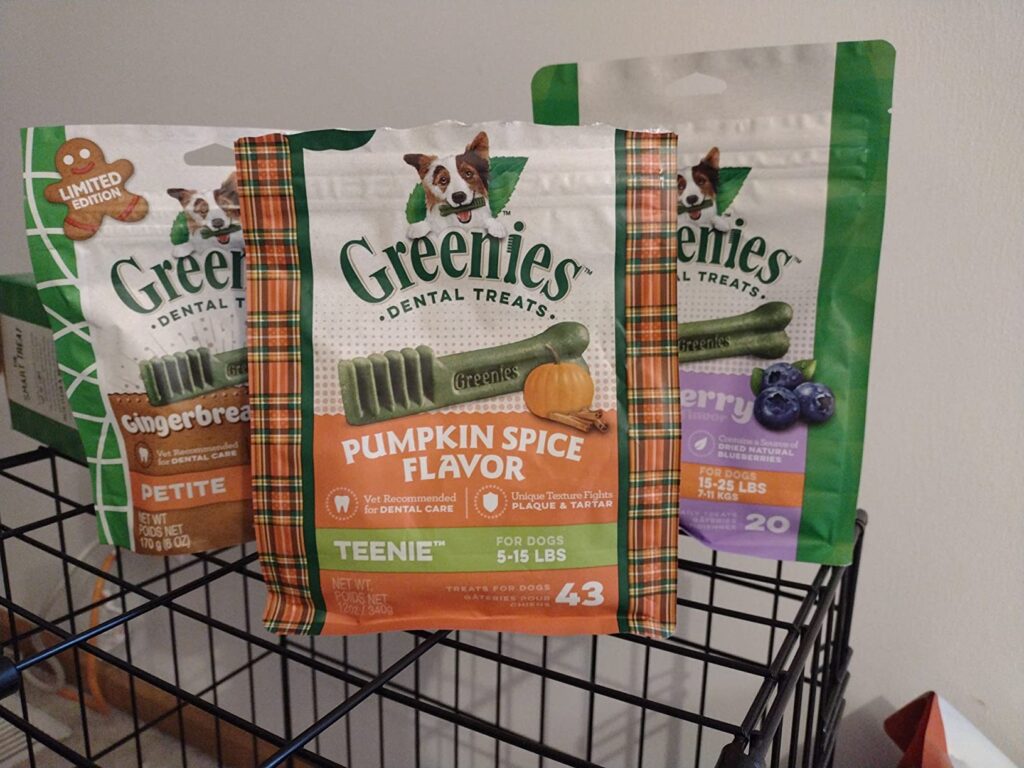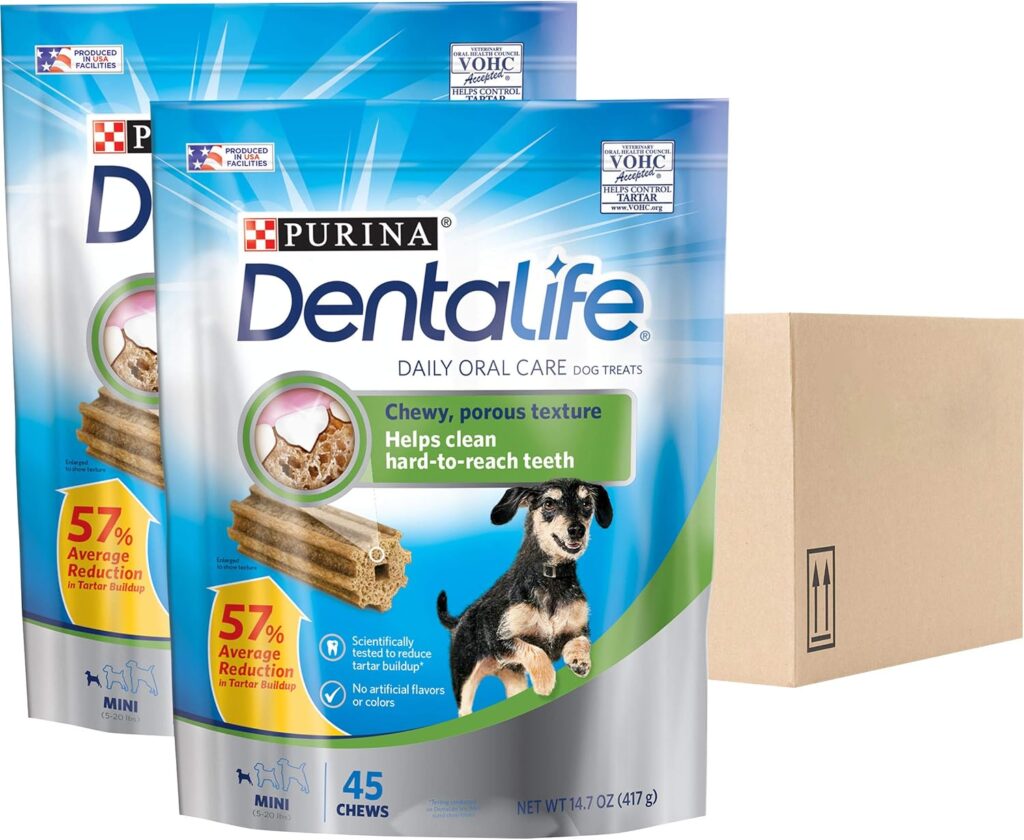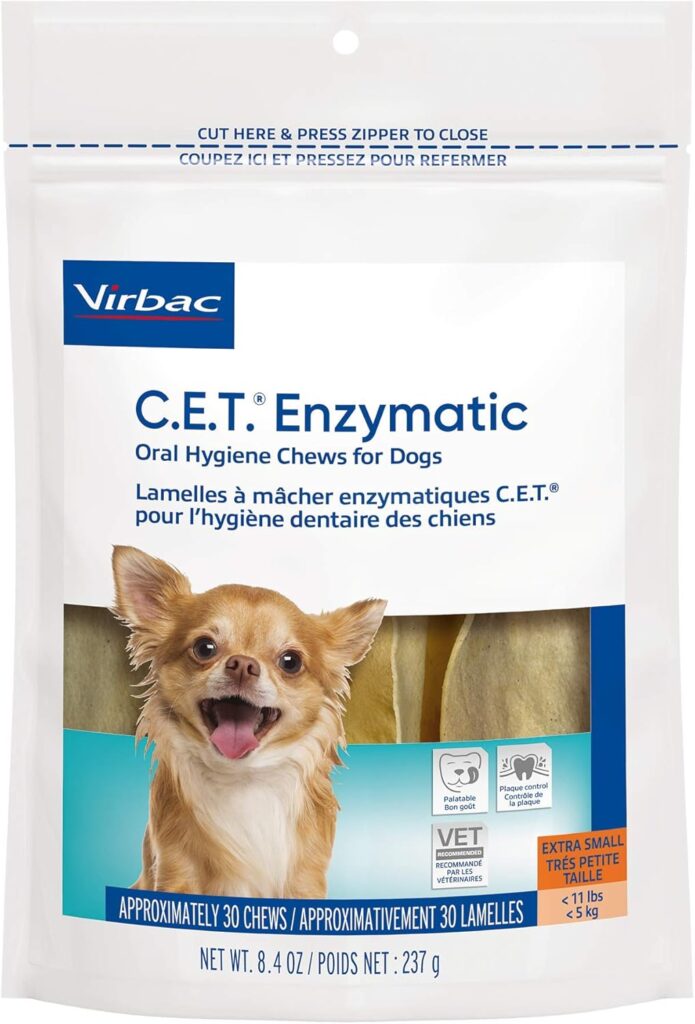If you’re a dog owner, you’ve probably wondered, Do Dental Chews and Toys Actually Benefit Your Dog’s Teeth?
It’s a question that crosses the mind of almost every dog parent, especially when you’re standing in the pet store aisle, eyeing those colorful chew toys and treats that promise sparkling teeth and fresh breath.

In my past blog, “Why Dog Dental Health Matters?”, I mentioned that dental chews and toys help keep those canine chompers in tip-top shape. So, consider this part two of that conversation.
We all want the best for our furry friends, and maintaining their dental health is a big part of that. But with so many products on the market, it’s hard to know what really works.
The Science Behind Dental Chews and Toys
So, how exactly are dental chews and toys supposed to help with your dog’s dental hygiene?
It’s all about the action—mechanical, abrasive, and antimicrobial. Let’s break it down.
- Mechanical Action: Imagine dental chews and toys as your dog’s version of a toothbrush. As your dog gnaws on them, the physical contact with their teeth helps to scrape away plaque and tartar. This is the same reason we brush our teeth—to remove the gunk that can lead to decay. Over time, regular chewing can lead to a noticeable reduction in plaque buildup, which is great news for your pup’s pearly whites.
- Abrasive Action: Some dental chews and toys go a step further by including mild abrasives, like baking soda or silica. These tiny particles work like a gentle sandpaper, polishing your dog’s teeth as they chew. It’s a bit like those gritty toothpaste formulas we use, which help to keep our teeth smooth and shiny.
- Antimicrobial Action: Fresh breath is more than just a nice-to-have; it’s a sign of a healthy mouth. Some dental chews and toys contain ingredients with antimicrobial properties, such as chlorine dioxide or essential oils. These ingredients help reduce the number of bacteria in your dog’s mouth, which not only freshens their breath but also supports overall oral health.
Do Dental Chews and Toys Really Work?
Now that we know how they’re supposed to work, the next big question is: do they actually deliver?
According to various studies and expert opinions, dental chews and toys can indeed be effective in promoting better dental health in dogs, but with a few caveats.
- Reducing Plaque and Tartar: Regular use of dental chews and toys can lead to a significant reduction in plaque and tartar buildup. This is because the mechanical and abrasive actions work together to break down the sticky film that forms on your dog’s teeth after meals. However, it’s important to note that while chews and toys can help, they aren’t a complete replacement for brushing. Think of them as a helpful supplement to your dog’s dental care routine.
- Freshening Breath: Nobody likes doggy breath, but thankfully, the antimicrobial properties in some chews and toys can help. By reducing the bacteria in your dog’s mouth, these products can minimize that not-so-pleasant odor. But remember, if your dog’s breath is persistently bad, it might be a sign of underlying dental issues, so a vet visit could be in order.
- Supporting Gum Health: Just like us, dogs can suffer from gingivitis and other gum diseases. Some dental chews and toys are designed to massage the gums while being chewed, which can help reduce inflammation and promote healthier gums. Healthier gums mean fewer dental problems down the line, so this is definitely a perk.
Choosing the Right Dental Chews and Toys
With so many options out there, how do you choose the right dental chews and toys for your dog? Here are a few tips to help you make the best decision:
- Look for the VOHC Seal: The Veterinary Oral Health Council (VOHC) seal is a sign that the product has been tested and meets specific dental health standards. Products with this seal have been proven to help reduce plaque and tartar, so it’s a good idea to prioritize these when shopping.
- Opt for Natural Ingredients: When it comes to what goes in your dog’s mouth, natural is usually better. Look for dental chews and toys that use natural ingredients and avoid those with harsh chemicals. This is especially important if your dog has any sensitivities or allergies.
- Choose the Right Texture: Dental chews and toys come in a variety of textures, and it’s important to choose one that’s suitable for your dog’s size, age, and dental needs. For example, puppies or older dogs with sensitive teeth might need softer chews, while more aggressive chewers might benefit from something tougher. The right texture ensures that your dog gets the most benefit without risking damage to their teeth.
Here are three examples of dog chews and toys with the VOHC (Veterinary Oral Health Council) seal that you can find on Amazon:
- Greenies Original Dental Dog Treats
- These popular dental chews are specifically designed to fight plaque and tartar buildup. They come in various sizes to suit different breeds and are made with natural ingredients. The texture of Greenies helps clean down to the gumline, freshening breath and promoting healthier teeth and gums.
- Available on Amazon

Photo Credit: Greenies
- Purina DentaLife Daily Oral Care Dental Dog Treats
- Purina DentaLife chews are scientifically tested to reduce tartar buildup, thanks to their unique porous texture that allows for a thorough clean. These treats are made with wholesome ingredients and are available in different sizes to accommodate various dog breeds.
- Available on Amazon

Photo Credit: DentaLife
- Virbac C.E.T. Enzymatic Oral Hygiene Chews for Dogs
- Virbac’s C.E.T. Enzymatic Chews are designed to combine mechanical and enzymatic cleaning action. These chews are formulated to reduce plaque and tartar while also freshening breath. They are a great option for dogs who may need a bit of extra help with their dental hygiene.
- Available on Amazon

Photo Credit: Virbac
Conclusion
So, do dental chews and toys actually benefit your dog’s teeth?
The short answer is yes, they can, but they’re not a magic bullet. These products are a helpful addition to your dog’s dental care routine, offering mechanical, abrasive, and antimicrobial benefits that can reduce plaque, freshen breath, and support gum health. However, they should be used in conjunction with regular brushing and vet check-ups to ensure your dog’s teeth stay in tip-top shape.
As with anything related to your dog’s health, it’s important to choose the right products and use them consistently. And, of course, keep an eye on your dog’s overall dental health—if something seems off, don’t hesitate to consult your vet.
After all, a healthy mouth is key to a happy, healthy dog!